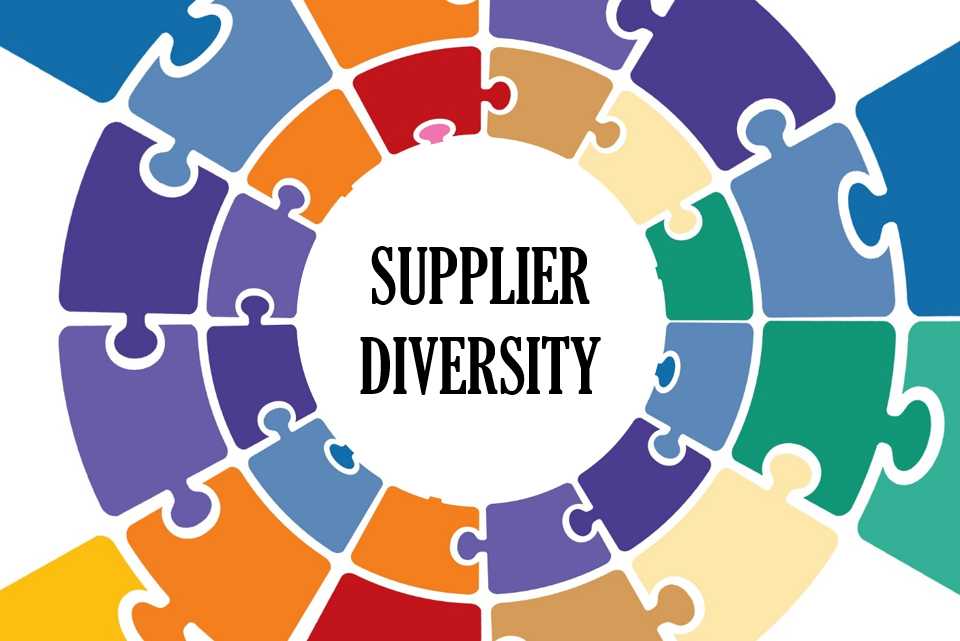In 2018, American business leaders are grappling with several profound shifts in the economic and social landscape: sweeping demographic changes, uneasy international relations that threaten supply chains, the stunning rise of ecommerce, and a serious national discussion on the role of business in fostering social good. Taken together, these issues can seem overwhelming, but the lynchpin to addressing them all may be a single strategy: supplier diversity.
Supplier diversity refers simply to an organization’s deliberate efforts to seek out supply sources and partnerships with businesses owned by members of underserved populations such as ethnic/racial minorities, women, LGBTQ people, or veterans. The federal government first codified supplier diversity into law in 1953 with the Small Business Act, which partially sought to help minorities in obtaining loans and starting small businesses. In the decades since, the government has expanded its commitment to supplier diversity by offering incentives and government contracts to projects that source from women, veteran, and minority-owned small businesses. While the government has offered invaluable leadership in working to diversify the small business climate, in some ways those efforts have created a misconception that supplier diversity is primarily a social outreach program, rather than a sound business strategy, but nothing could be further from the truth.
Many of the nation’s largest companies recognize the value of supplier diversity and have made it a priority in recent years. In 2007, Wal-Mart spent $3.9 billion with over 2000 minority-owned suppliers. The same year, IBM spent $2.3 billion with diverse suppliers and subcontractors, and since then, Microsoft, Google, and AT&T have all made supplier diversity a core tenet of their procurement strategies. The National Minority Development Council reported in 2006 that the nation’s largest corporations purchased more than $100 billion in goods and services from diverse suppliers, a meteoric rise from 1972, when that number was just $86 million. These companies are motivated both by a sense of social responsibility and the desire to gain a competitive advantage in minority communities by partnering with businesses rooted in those communities. By the same token, at a time when gender roles in the workplace is again a topic of national conversation, seeking out women-owned businesses is an opportunity for corporations to show they are doing their part to challenge the persistent “glass ceiling” problem in American boardrooms.
While major corporations may be leading the way in supplier diversity, its true value lies in maintaining a healthy small business climate and supporting local communities. Too often, procurement strategies rest on the unexamined assumption that bigger automatically means better, but this is a very flawed and short-sighted philosophy. Partnering with vast, multinational corporations sends profits and jobs out of the local economy, while according to the National Minority Supplier Development Council’s (NMSDC) 2014 report, “MBEs have a total economic impact of over $400 billion dollars in output that results in the creation of and/or preservation of more than 2.2 million jobs held by persons who find themselves either directly or indirectly employed by NMSDC certified MBEs.”
From a supply chain management perspective, supplier diversity is a wise strategy to avoid costly disruptions. One of our most consistent pieces of advice to clients is to maintain agile and flexible relationships with suppliers, and small businesses are better positioned to adapt to clients’ changing needs, as well as often being more customer-focused. Diverse suppliers tend to bring with them diverse, innovative ideas that challenge the status quo and locate previously unrealized potential within supply chains. In trucking, for example, the national driver shortage is sending rates skyrocketing, while the industry struggles to attract labor. Yet among trucking’s most persistent problems is an inability to retain female drivers, an issue which woman-owned carriers are uniquely positioned to address. By the same token, Hispanic-owned carriers can reach out to an immigrant community that is very willing to drive trucks during a time when the government as a whole is hostile toward them.
There is a perception that being a disadvantaged business automatically makes you small and unable to serve the needs of a large enterprise, and that’s simply not the case. “Companies that focus on supplier diversity, driven by a sense of social responsibility, government mandates, or a range of other factors, are just as able to run effective procurement operations as their peers that ignore supplier diversity,” according to Hackett Senior Business Advisor Kurt Albertson. If anything, disadvantaged business owners tend to have particularly strong work ethics, because it took them more effort just to get to the starting line.
With the data in hand, it’s not difficult to convince business owners that supplier diversity is a strategy that can simultaneously grow revenue, attract new customers, and perform a genuine social good. Yet despite these tangible benefits, businesses often struggle to implement concrete protocols for supplier diversity, leaving it in the vague realm of “wouldn’t it be nice.” But for supplier diversity to work, it must be a formalized, data-driven process. The first step in initiating a supplier diversity program is educating all employees about its benefits, developing a genuine organizational commitment that won’t simply revert to old habits when faced with its first challenge. Set concrete and aggressive goals for supplier diversity, and conduct outreach to find diverse partners. There are several certifying agencies to connect businesses with suppliers, such as the NMSDC, the Women’s Business Enterprise National Council (WBENC), and the NWBOC, which certifies companies as Veteran Business Enterprises (VBEs). It may a divided time for the country as a whole, but by pursuing supplier diversity, American businesses can do their part to reach across historical boundaries and uplift their communities.
Start your supplier diversity program with your logistics provider. Red Arrow Logistics is a certified woman-owned business, committed to promoting diversity for all our clients.



